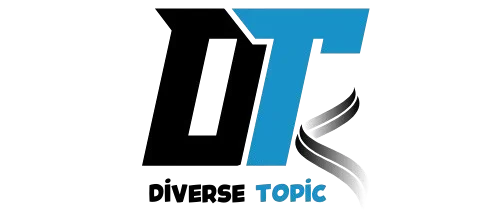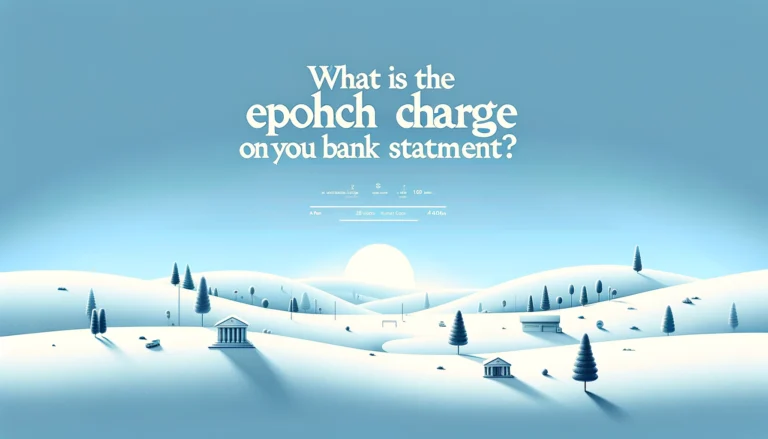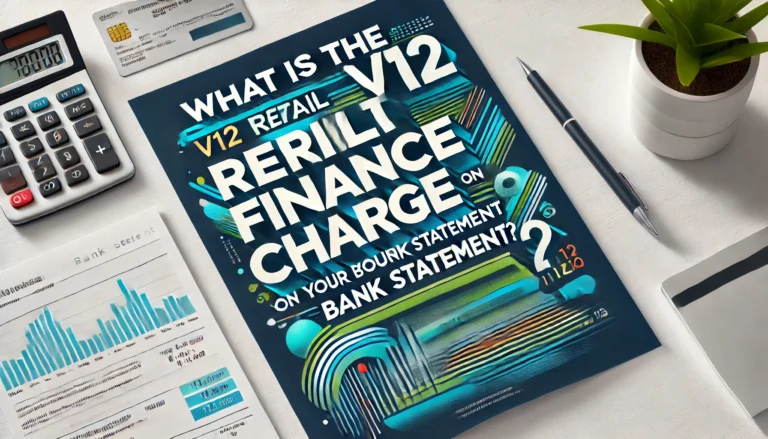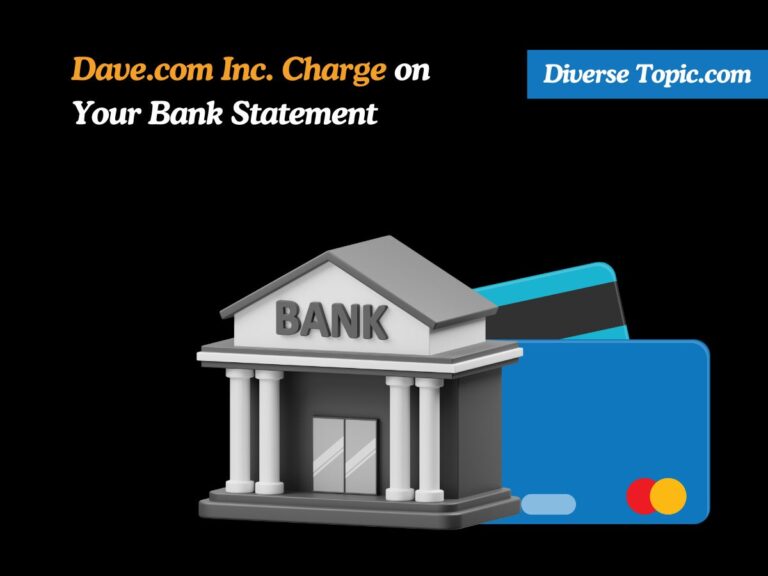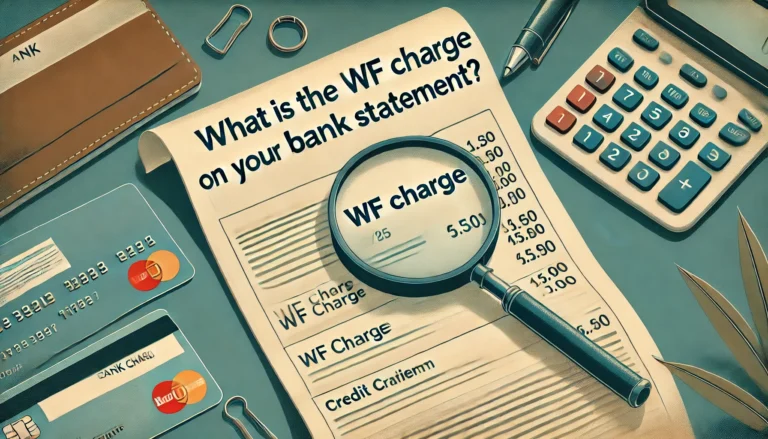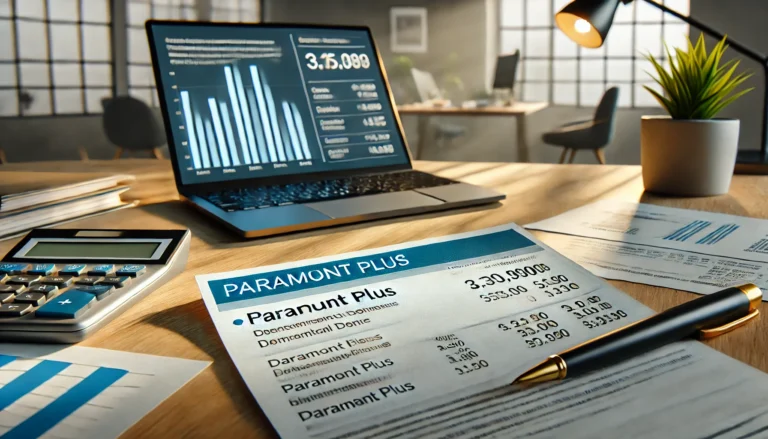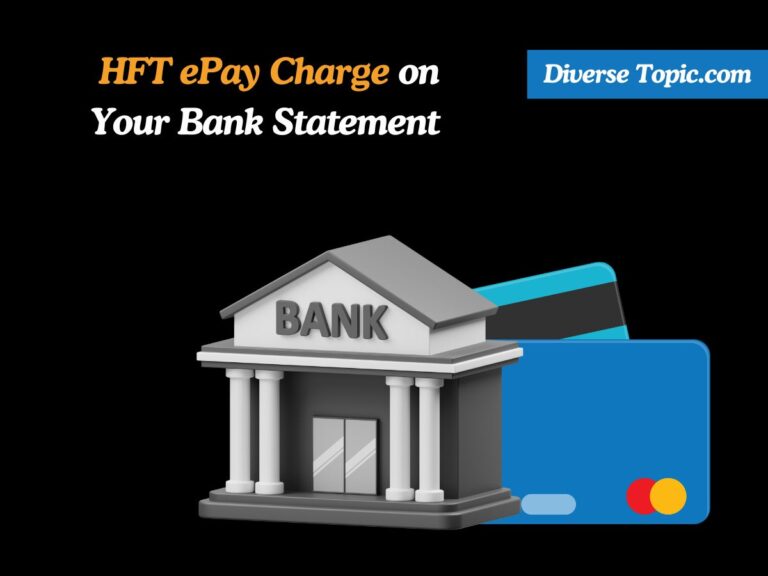What Is the MCW Charge on a Bank Statement?
Bank statement transactions are sometimes confusing, particularly when they include strange acronyms. If you’ve come across a deposit or credit marked “MCW Charge,” you might be curious as to what it signifies. This thorough explanation seeks to explain the “MCW” fee and its financial ramifications.
Understanding MCW
The acronym for “MCW” is “Memo Cash Withdrawal.” It indicates that a consumer used a debit card to withdraw money from their bank account and chose to use the “savings” or “checking” option rather than the “credit” option.
Payment Options with Debit Cards
When using a debit card, customers typically have three payment options:
- Credit: The transaction is processed as a credit card purchase.
- Savings: The transaction deducts funds directly from the savings account.
- Checking: The transaction deducts funds directly from the checking account.
The transaction is considered a cash withdrawal whether a client chooses the “savings” or “checking” option; as a result, “MCW” will show on the bank statement.
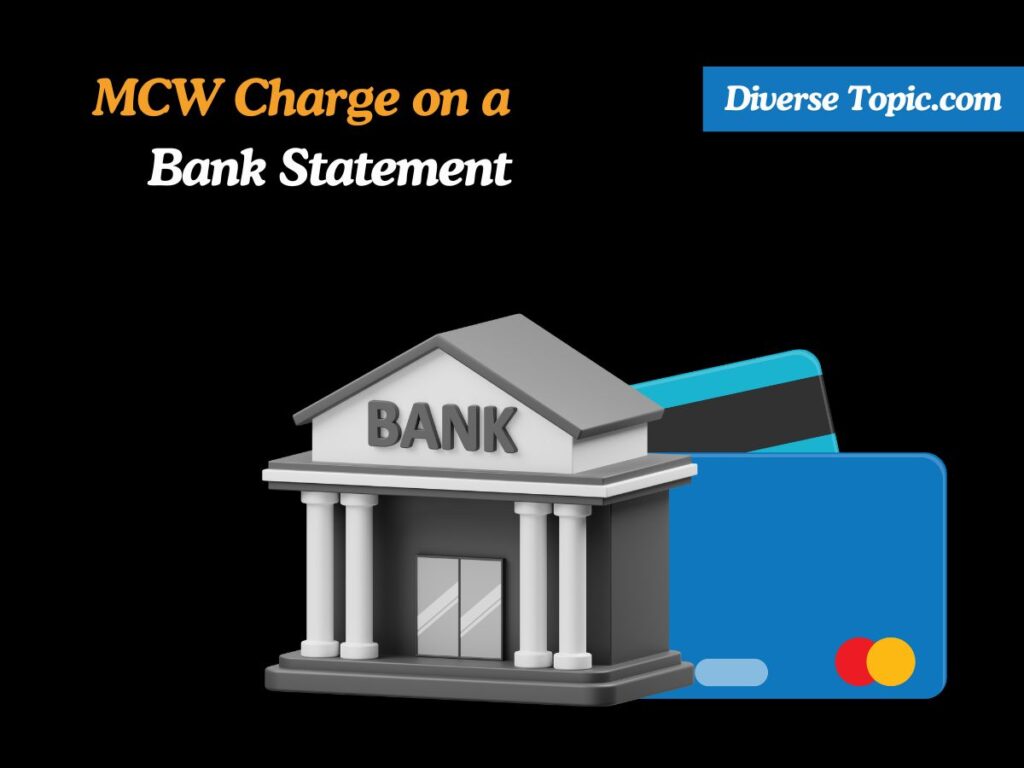
How MCW Appears on a Bank Statement?
The “MCW” charge typically shows up as an entry on your bank statement alongside other transactions. This entry usually includes the following details:
- Date: When the transaction occurred.
- Time: The exact time of the transaction.
- Description: Clearly labeled as “MCW.”
- Amount: The cash withdrawn from the account.
- Balance: The account balance before and after the transaction.
Example of MCW on a Bank Statement
Here is a sample representation of how “MCW” may appear on a bank statement:
| Date | Time | Description | Amount | Balance |
|---|---|---|---|---|
| 01/01/2023 | 01:00 PM | MCW | -$170.00 | $8,830.00 |
In this example, a memo cash withdrawal of $170.00 was made on January 1st at 01:00 PM, decreasing the account balance from $9,000.00 to $8,830.00.
Reasons for the MCW Charge
There are several scenarios where a customer might see an “MCW” charge on their bank statement:
ATM Withdrawal: The customer used their debit card to withdraw cash from an ATM.
Retail Purchase: The consumer selected the “savings” or “checking” option at the payment terminal after making a purchase at a retail establishment.
Cash Advance: Using their debit card, the user acquired a cash advance from a bank or other financial institution.
Fees Associated with MCW Charges
It’s important to remember that “MCW” transactions sometimes come with costs. The bank or other financial organization may impose these costs in exchange for enabling the cash withdrawal service. The precise costs might change depending on:
- The bank’s policies.
- The type of account held by the customer (e.g., standard checking vs. premium accounts).
- The location of the ATM or merchant.
Also Read Republic TRS Charge on a Bank Statement.
What to Do If You Don’t Recognize the MCW Charges on Your Bank Statement
It might be unsettling to see an unknown Memo Cash Withdrawal (MCW) charge on your bank statement. It is imperative that you respond to these accusations as soon as possible in order to protect your finances. Here’s a detailed explanation on how to properly manage unrecognized MCW charges.
Review Your Transaction History
- Examine Recent Transactions: Review all of your recent transactions, including any cash outs, ATM usage, and debit card purchases. Occasionally, a charge could seem strange because of a mistake or memory loss.
- Consider Shared Accounts: Verify whether friends or family who have access to your account have made the withdrawal. Talking to them about it might help to make things clearer.
Dispute the Charge
- Inquire About Dispute Process: After contacting with customer support, if the charge is still not apparent to you, find out how to dispute it.
- Follow Instructions: You can be asked by your bank to present further proof or file a formal dispute. To speed up the procedure, make sure you strictly adhere to their recommendations.
Protect Your Account
- Change Your PIN: Change your PIN right away if you think your debit card information may have been hacked.
- Review Security Measures: Make sure the credentials you use for internet banking are safe. If your bank allows it, set up two-factor authentication and use secure passwords.
Also Know Rocket Law Charge on Your Bank Statement.
How to Prevent MCW Charges on Your Bank Statement
Memo Cash Withdrawal (MCW) costs, particularly if you use your debit card to withdraw cash regularly, can have an effect on your bank balance and may incur additional fees. Here are some practical tips to help you avoid these fees and improve the way you handle your money.
Understand Your Withdrawal Options
Know Your Choices: Learn about the credit, savings, and checking choices accessible to you while using your debit card. Choosing “credit” frequently prevents an instant withdrawal from your account, whilst selecting “savings” or “checking” results in an MCW fee.
Use ATMs Wisely
In-Network ATMs: Make use of ATMs inside the network of your bank. While withdrawals from out-of-network ATMs may result in MCW costs, withdrawals from in-network ATMs often don’t carry fees.
Limit Withdrawals: Aim to keep cash withdrawals to the absolute minimum. Organizing your withdrawals can help you stay out of the MCW charge cycle.
Rethink Cash Usage
Use Digital Payments: When making purchases, if feasible, substitute credit or debit cards for cash. By doing this, fewer cash withdrawals are required, and MCW fees are completely avoided.
Set a Budget: Make a budget for your cash outlays in order to reduce the frequency of your cash withdrawals. Keep track of your cash expenditures to make sure you only take out what you need.
Monitor Your Accounts Regularly
Check Statements Frequently: Check your bank statements frequently to be aware of any costs related to MCW. You may better understand your spending patterns by detecting problems early.
Set Up Alerts: Transaction alerts via email or mobile notifications are provided by several banks. You can keep an eye on and control your cash consumption by setting these alerts to tell you when there are withdrawals.
Adjust Your Banking Practices
Review Account Features: If you already have an account that charges excessive costs for cash withdrawals, you might want to look into opening a new kind of account that offers better conditions or lower prices for access to cash.
Discuss Options with Your Bank: Discuss your requirements for cash withdrawals with a bank representative. They could offer substitutes or accounts that better suit your banking preferences.
Use Cash Back Options
Request Cash Back: When making a purchase at retailers, opt for cash back during the transaction instead of withdrawing cash from an ATM. This method may prevent MCW charges and can help you obtain cash directly from your purchases.
Educate Yourself on Fees
Understand Fees: Examine and comprehend all of the costs attached to your bank account, particularly those for cash advances and ATM withdrawals. Understanding them will enable you to use funds more wisely.
Ask Questions: Never be afraid to approach your bank for clarification if you have questions about any particular costs. Comprehending the pricing structure can assist you in avoiding pointless expenses.
Use Financial Tools
Utilize Budgeting Tools: Apps for budgeting should be used to track your spending and establish monetary restrictions. By using these tools, you can better manage your money and cut down on the amount of cash you take out.
Track Spending: Keep a close eye on your spending patterns using personal financial tools. Recognizing trends in cash use will enable you to make adjustments and reduce MCW costs in the future.
Conclusion
It is essential to comprehend the “MCW” fee on your bank account in order to manage your finances effectively. It might be easier to understand your spending and withdrawal patterns if you realize that it represents a recorded cash withdrawal. You must manage your banking habits proactively in order to avoid MCW costs.
You may reduce or even completely avoid these fees by being aware of your withdrawal alternatives, using ATMs carefully, and implementing sensible budgeting techniques. You’ll be even more in charge of your finances if you keep an eye on your account and remain aware of your bank’s fee schedule.
